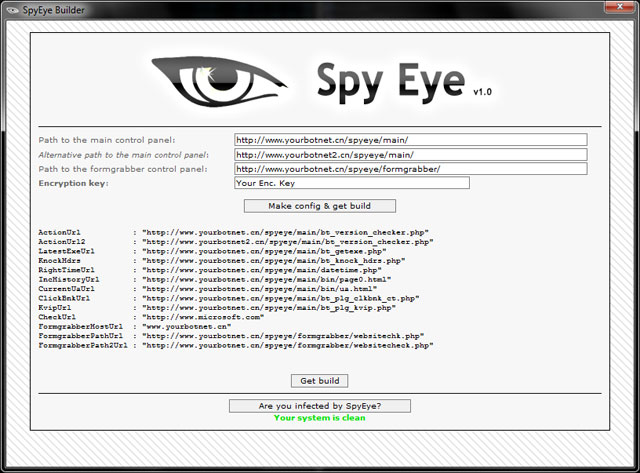Getting the cybercriminal group behind SpyEye
British officials say they have arrested three criminals behind the series using SpyEye malicious code to steal online bank accounts from users.

SpyEye has proved to be "superior" to ZeuS, which has the same working style.
The investigation was conducted by the British Police's Electronic Crime Prevention Unit, which began in January this year, primarily focused on tracking how this criminal group uses very new variants. of SpyEye malware.
The police have yet to publish details of these variants, only knowing SpyEye is a program designed solely for the purpose of collecting personal details of the victim's online account (personal) and then self send these data to a remote computer, under criminal control.
The British police say the three-person arrest is part of an international investigation project to pursue a group that uses this malware for similar crimes.
According to a survey conducted by PC World magazine, two of the three arrested were courted in Westminster Magistrates in London, England. It was Pavel Cyganoc, a 26-year-old Lithuanian, accused of plotting to make unauthorized changes in victim computers, conspiracy to commit fraud and unsuccessful declarations of crime. Aldis Krummins, 45, Latvian nationality, was also accused of a similar crime. The identity and nationality of a third person, a 26-year-old youth, is unknown, because this person is currently on bail due to his bail. The police also confiscated computer equipment and internal data for the investigation process.
SpyEye Malware was first discovered in early 2010, and it seems to be the "rival" of the ZeuS trojan toolkit technology until the ZeuS source code is handed over to the person who wrote SpyEye. SpyEye detection and prevention efforts include creating malware tracking software, but SpyEye and the way it does bank account theft are increasingly difficult to detect.